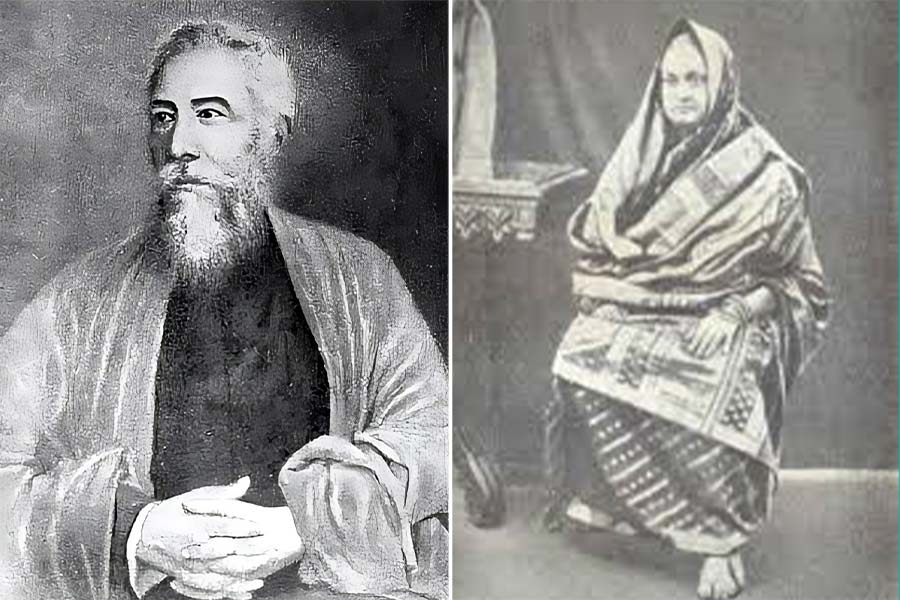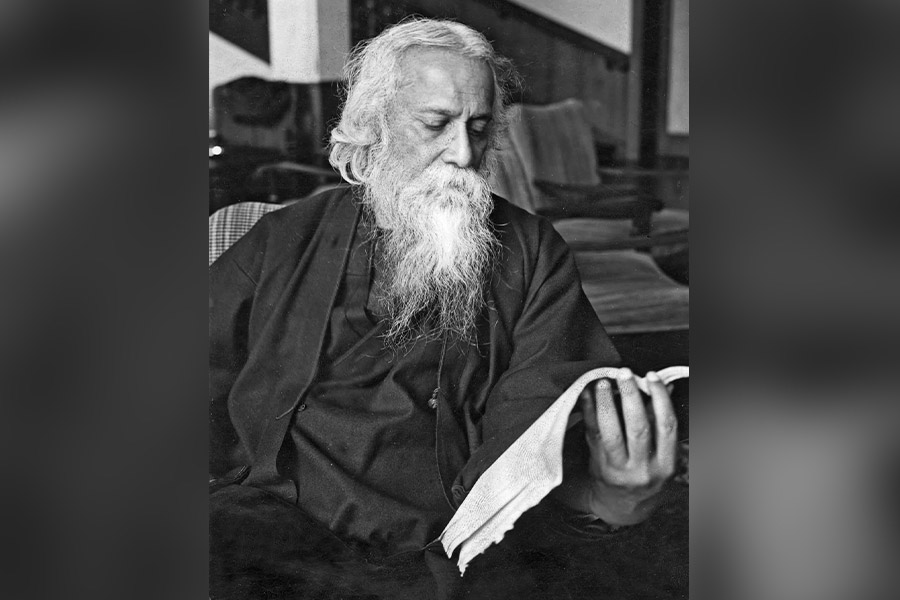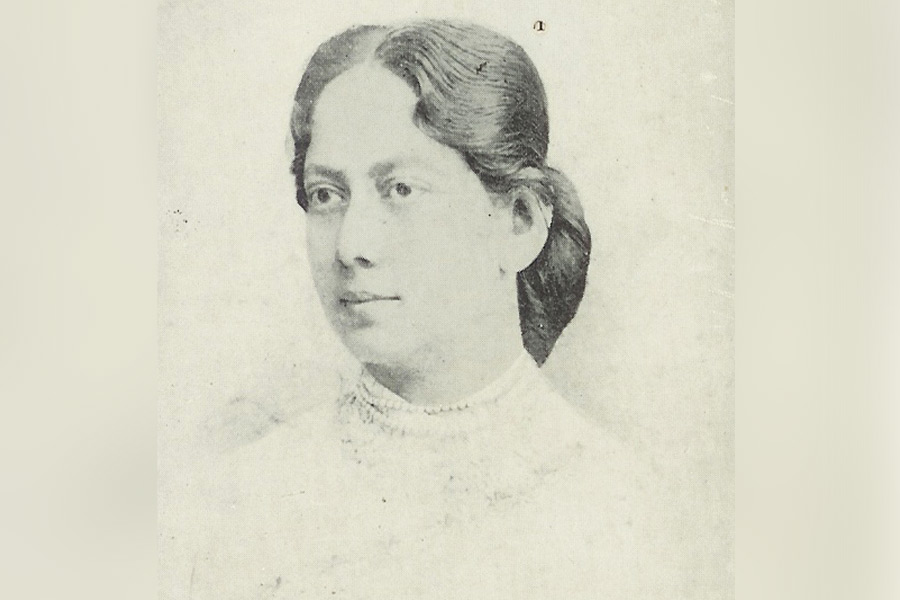In 1919, the publishing house Ganesh & Co. of Madras published a collection of short stories in English titled, somewhat unimaginatively, Short Stories. The author, a short bio in the back cover tells us, is Swarnakumari Devi Ghoshal. A Bengali lady writing stories in English in the early part of the 20th century is quite a feat in itself. But Swarnakumari Devi Ghoshal was much more than just her collection of short stories. Her prolific career as a writer included novels, stories, poems, essays, plays, more than 300 songs, and even, the first opera in Bengali. She was an active participant in the Swadeshi movement and was among the first two women delegates to the Indian National Congress (Kadambini Ganguly being the other). In 1886, she had founded Sakhi-Samiti — the first institution in Bengal dedicated to the cause of women’s upliftment. She was also a founder of the Ladies’ Theosophical Society in Calcutta. She was the first female editor of Bharati — a leading literary magazine of the time — and held the office for more than 30 years.
Despite this groundbreaking resume, Swarnakumari Devi Ghoshal is a near-forgotten name today. As a matter of fact, the thing for which is more likely to be remembered today is her famous family. And that is not something new. After all, a 1919 review in Aberdeen Press of her Short Stories collection made a point to introduce her not by her abilities or achievements but as “(Mrs. Ghoshal is) a sister of Rabindranath Tagore, to whom the Nobel Prize (sic) was recently awarded….”
Swarnakumari was the 10th offspring of Maharshi Debendranath Tagore and Sarada Devi and was elder to Rabindranath. She was born around the middle of the 1850s, possibly 1856. As per the custom of the time, Swarnakumari did not attend school, but was taught at home in Sanskrit and English, along with the other young girls of the family. Like many other members of her famous clan, Swarnakumari was born talented. And it did not take long for her talent to make its presence known.

Swarnakumari was the 10th offspring of Maharshi Debendranath Tagore and Sarada Devi
But before that, at the age of 13 she was married off to Janakinath Ghoshal — a deputy magistrate. In 1870, at just 14, she anonymously published her novel Dipnirban (Snuffing out the Light). Of her effort, the Calcutta Review wrote, “We have no hesitation in pronouncing this book to be by far the best that has yet been written by a Bengali lady, and we should no more hesitate to call it one of the ablest in the whole literature of Bengal."
Swarnakumari wrote 24 essays — 17 of which were on science. She wrote on science in a layman-like language, devoid of jargon, which made them easy to grasp and understand for the average reader. She was a pioneer in this space and is credited with creating new Bengali terminology for important scientific terms. Her collection of science essays, titled Prithivi (Earth) was published in 1882. Three years earlier, she had published Basanta Utsav (Spring Festival) — acknowledged generally as the first opera written in Bengali.
One of the interesting aspects of a lot of Swarnakumari Devi’s writings was the autobiographical influences in them. Her own life/experiences, consciously or subconsciously, found their way in her writing — imparting them a quality of being a window into the contemporary times. The last story in her collection of short stories, titled Mutiny, is inspired from her birth on the verge of the Great Mutiny of 1857 and taking life’s first steps in those tumultuous years when northern India burnt and later witnessed transfer of power from the traders to the Crown of Britain. A poem titled Likhitechhi (I Am Writing), Swarnakumari expresses frustration and discontent in context of establishing herself as a writer in times where women writers were not taken seriously and treated in a patronising manner.
As a matter of fact, she got no favours even from her illustrious brother. In a 1914 letter to an English friend, the most famous Tagore narrated this description of his older sister, “She is one of those unfortunate beings who has more ambition than ability….. I have given her no encouragement but have not been successful in making her see things in the proper light.”

Swarnakumari she got no favours from her illustrious brother
And despite her long list of achievements, it was a battle that Swarnakumari had to keep on fighting all her life. It however did not stop her from adding to her considerable bouquet of accolades. In 1927, Swarnakumari was awarded the Jagattarini gold medal by the Calcutta University — becoming the first woman to receive the honour. In 1929, she was made the President of the Vangiya Sahitya Sammelan. Swarnakumari passed away in 1932. Just few days after her death, Amritabazar Patrika wrote of her, “one of the most outstanding Bengali women of the age (who) did her best for the amelioration of the condition of the women of Bengal.”
A true feminist at heart, Swarnakumari Devi’s whole life was a battle against societal prejudices against her gender. She excelled in both writing and public life, at a time when society did not want to see a woman succeed in either. Yet, in the near century that has passed since her death, Swarnakumari has faded from memory gradually. Apart from her famous sibling, she has also been eclipsed by her own famous off-spring, Sarala Devi Choudhurani – a remarkable woman in her own right.
We are passing through tumultuous times when a woman’s right to basic existence is under a cloud. But to achieve gender equality, it is critical we remember those that initiated the fight and fought with honour in great handicap scenarios.
